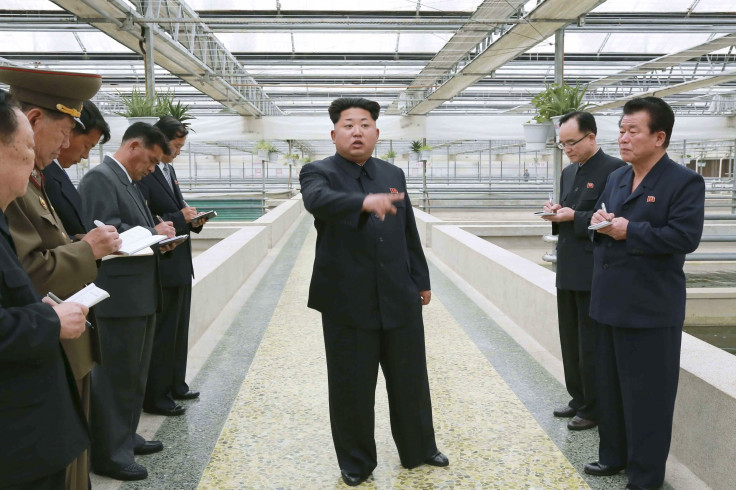North Korea, Iran Building Ties For Ballistic Missiles, Nuclear Warheads, Exiled Iranian Dissident Group Says

North Korea and Iran are secretly building ties to equip themselves with ballistic missiles and nuclear warheads, Reuters reported Thursday, citing an exiled Iranian opposition group. A delegation of nuclear arms experts from North Korea visited a military site near Tehran in April while Iran was in talks with world powers over its nuclear program, the group has claimed.
The National Council of Resistance of Iran (NCRI), a Paris-based Iranian dissident group, reportedly said that a seven-person team of the North Korean Defense Ministry was in Iran in the last week of April in what was the third visit by North Korean officials in 2015, while a nine-person delegation from Pyongyang is expected to visit the country again in June, NCRI said, citing sources inside Iran.
“The delegates included nuclear experts, nuclear warhead experts and experts in various elements of ballistic missiles including guidance systems,” NCRI reportedly said, adding that the North Korean officials were taken secretly to the Imam Khomenei complex, a military site controlled by Iran’s defense ministry.
According to NCRI, the North Korean delegation met with officials at the Centre for Research and Design of New Aerospace Technology, a unit of nuclear weapons research and planning center, called the Organization of Defensive Innovation and Research (SPND), which is under U.S. sanctions, Reuters reported.
NCRI, which had earlier exposed Iran's uranium enrichment plant at Natanz, located 238 miles south of Tehran, reportedly said that the SPND unit focuses on research and manufacturing of interior parts of nuclear warheads.
“Tehran has shown no interest in giving up its drive to nuclear weapons. The weaponization program is continuing and they have not slowed down the process,” Reuters quoted Shahin Gobadi, a NCRI spokesman, as saying.
Israel, a vocal critic of the Iran nuclear deal, said earlier this year that the Iran-North Korea connection could be a critical hurdle in reaching a deal on Iran’s nuclear program.
“If this loophole is not closed, and if Iran under an agreement can have some kind of research and development, knowledge exchange and participation in other countries like North Korea, then this is also the way to bypass an agreement by simply not doing it alone in Iran, but by cooperating with North Korea or other rogue countries,” Forbes quoted Yuval Steinitz, Israel’s intelligence minister, as saying at the time.
Iran and six world powers are expected to reach a final comprehensive settlement over a proposed nuclear deal by the end of June. However, several issues, including the monitoring and verifying of measures to ensure Iran does not secretly pursue a nuclear weapons program still remain to be addressed.
“We are not at the point where we can say that negotiations will be completed quickly -- they will continue until the deadline and could continue beyond that,” Abbas Araghchi, a senior Iran envoy, told state news agency IRNA, adding that the negotiations may not be completed by the June 30 deadline.
© Copyright IBTimes 2024. All rights reserved.






















